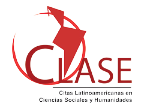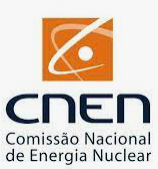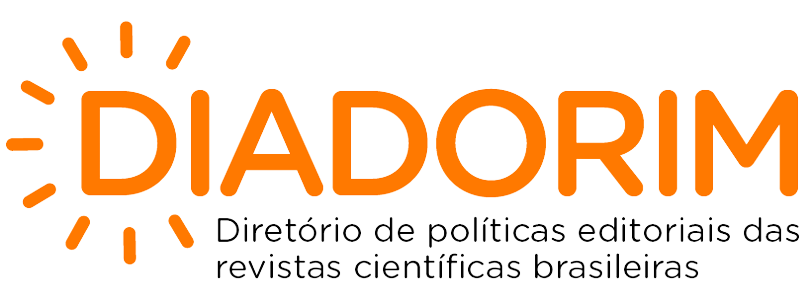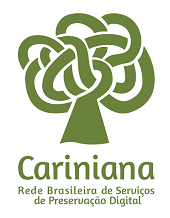Living and thinking about teaching history in face of social and identity demands of the twenty-first century
DOI:
https://doi.org/10.5433/2238-3018.2015v21n2p31Keywords:
History Teaching, Teacher Training, Social DemandsAbstract
This article discusses the challenges encountered by the History teacher, in face of some of the social and identity demands of the twenty-first century, especially in relation to intercultural dialogue, cultural heritage, and the imagined past in the media. The main objective is to reflect on the academic role of the History teacher in relation to these issues. Dialogue is accomplished with theoretical perspectives on teacher training, memory, and History, from Antonio Nóvoa, Andreas Huyssen, Hayden White, among others, articulated with experiences, observations, and research carried out by the authors. It is argued that the teaching of History nowadays is a very diverse practice compared to earlier times, since the demands that society has placed on the curricula and role of teachers have multiplied and are linked to unique social, ethnic, and cultural movements, which call into question the relationship between history, memory, identities, and their meaning in History class. These questions demonstrate the complexity of teaching in and out of the classroom, which goes beyond the idea of methodological adaptation of academic background and knowledge is reached in proposals of questioning and dialogue between many stories and past events.
References
BENJAMIN, W. Teses sobre a história. In: BENJAMIN, W. Obras escolhidas. Magia e técnica, arte e política. Ensaios sobre literatura e história da cultura. São Paulo, Brasiliense, 1987, p. 197-232.
BERGAMASCHI, M. A. Povos indígenas e ensino de História: a lei 11.645/2008 como caminho para a interculturalidade. In: BARROSO, Vera Lucia Maciel et al. (Org.). Ensino de História e Desafios Contemporâneos. Porto Alegre: ST: Exclamação: Anpuh/RS, 2010. P. 151-166.
BRASIL. Presidência da República. Lei n. 10.639, de 09 de janeiro de 2003. Altera a Lei no 9.394, de 20 de dezembro de 1996, que estabelece as diretrizes e bases da educação nacional, para incluir no currículo oficial da Rede de Ensino a obrigatoriedade da temática “História e Cultura Afro-Brasileira”, e dá outras providências. Diário oficial, República Federativa do Brasil, Brasília/DF, 2003, p. 1. Disponível em: http://www.jusbrasil.com.br/topicos/11691973/artigo-26-dalei-n-9394-de-20-de-dezembro-de-1996. Acesso em: 15 abr. 2015.
BRASIL. Presidência da República. Lei n. 11.645, de 10 de março de 2008. Altera a Lei 9.394, de 20 de dezembro de 1996, modificada pela Lei 10.639, de 9 de janeiro de 2003, que estabelece as diretrizes e bases da educação nacional, para incluir no currículo oficial da rede de ensino a obrigatoriedade da temática “História e Cultura Afro-Brasileira e Indígena”. Diário oficial, República Federativa do Brasil, Brasília/DF, 2008, p. 1.
BRESCIANI, M. S.; NAXARA, M. (Org.). Memória e Res(sentimento): indagações sobre uma questão sensível. Campinas: Ed. da Unicamp, 2004.
FORQUIN, Jean-Claude. Escola e Cultura: as bases sociais e epistemológicas do conhecimento escolar. Porto Alegre: Artes Médicas, 1993.
FOUCAULT, M. O pensamento do exterior. In: Estética: literatura e pintura, música e cinema. (Ditos e escritos, vol. III). 2 ed. Rio de Janeiro: Forense Universitária, 2001, p. 219-242.
FREITAS, L. C. de. Eliminação adiada: o ocaso das classes populares no interior da escola e a ocultação da (má) qualidade do ensino. Educação & Sociedade, Campinas, v. 28, n. 100, p. 965-987, out. 2007.
GIL, C. Estágio de docência em história: saberes e práticas na educação para o patrimônio. In: GIL, Carmem; TRINDADE, Rhuan (Org.). Patrimônio Cultural e Ensino de História. Porto Alegre: Edelbra, 2014, p. 37-51.
HUYSSEN, A. Passados presentes: mídia, política, amnésia. In: Seduzidos pela Memória: arquitetura, monumentos, mídia. Rio de Janeiro: Aeroplano, 2000, p. 9-40.
LAVILLE, C. A Economia, a Religião, a Moral: novos terrenos das guerras da história escolar. Educação & Realidade, Porto Alegre, v. 36, n. 1, p. 173-190, 2011.
MATTOS, H.; ABREU, M.; GURAN, M. Inventário dos Lugares de Memória do Tráfico Atlântico de Escravos e da História dos Africanos Escravizados no Brasil. LABHOI/UFF, 2013. Disponível em: http://www.labhoi.uff.br/sites/default/files/inventario_julho_2013.pdf. Acesso em: 13 jun. 2015.
MIRANDA, S.; PAGÈS, J. Cidade, Memória e Educação: conceitos para provocar sentidos no vivido. In: MIRANDA, S.; SIMAN, L. (Org.). Cidade, Memória e Educação. Juiz de Fora: Ed. UFJF, 2013, p. 59-92.
MUSEU AFRO-DIGITAL. Apresentação. Disponível em: . Acesso em: 13 jun. 2015.
MUSEU DE PERCURSO DO NEGRO EM PORTO ALEGRE. Inicial. Disponível em Acesso em 01 jul. 2015.
NÓVOA, A. Os Professores na Virada do Milênio: do excesso dos discursos à pobreza das práticas. Educação e Pesquisa, São Paulo, v. 25, n.1, jan./jun. 1999.
NÓVOA, A. Professor se forma na escola (entrevista). Revista Nova Escola, São Paulo, ed. 142, maio 2001.
PEREIRA, J. S. Do colorido a cor: o complexo identitário na prática educativa. In: GONCALVES, Marcia de Almeida et al. (Org.). Qual o Valor da História Hoje? Rio de Janeiro: Ed. FGV, 2012, p. 307-322.
POLLAK, M. Memória, esquecimento, silêncio. Estudos Históricos, Rio de Janeiro, v. 2, n. 3, p. 3-15, 1989. SILVA, T. T. da. Documentos de Identidade: uma introdução às teorias do currículo. Belo Horizonte: Autêntica, 1999.
THORNTON, S. Aspiration and Practice: teacher as curricular-instructional gatekeeper in social studies. In: ANNUAL MEETING OF THE AMERICAN EDUCATIONAL RESEARCH ASSOCIATION, 70. 1989, São Francisco. Anais… San Francisco, 1989, p. 1-15. Disponível em: . Acesso em: 22 maio 2015.
VIÑAO FRAGO, A. La historia material e inmaterial de la escuela: memoria, patrimonio y educación. Educação, Porto Alegre, v. 35, n. 1, p. 7-17, jan./abr. 2012.
WHITE, H. Trópicos do Discurso: ensaios sobre a crítica da cultura. São Paulo: Edusp, 2001.
Downloads
Published
How to Cite
Issue
Section
License
A revista se reserva os direitos autorais sobre as contribuições publicadas, sem retribuição material para o autor, podendo disponibilizá-las on-line no modo Open Access, mediante sistema próprio ou de outros bancos de dados; também poderá efetuar, nos originais, alterações de ordem normativa, ortográfica e gramatical, com o intuito de manter o padrão culto da língua. As opiniões emitidas pelos autores são de sua exclusiva responsabilidade.














